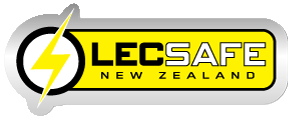Electrical Testing and Tagging for Greenpeace NZ
Case Study: Electrical Testing and Tagging for Greenpeace NZ
Free Electrical Safety Compliance Audit
We offer a free compliance audit for potential customers, allowing us to review their current testing practices against the AS/NZS 3760 standard requirements. During the audit for Greenpeace, we identified several critical issues that were contributing to inflated costs and inefficiencies.
Issues Identified
-
Overtesting in Low-Risk Environments:
- Some items were being tested more frequently than required. These items were located in low-risk environments where the likelihood of damage or failure was minimal.
-
Unnecessary Testing of Unused Items:
- Items that were not currently in use or out of service were being tested annually, regardless of their status. This practice resulted in unnecessary expenditures on testing resources.
-
Additional Unrequired Tests:
- Certain items underwent additional tests that were not mandated by the standard, This increased the overall test volume and associated costs.
-
Inconsistent Documentation:
- There were inconsistencies in the testing documentation, leading to confusion and potential compliance issues.
Developing an Efficient Test and Tag Program
To address these issues and optimise the testing process for Greenpeace NZ, we developed a tailored test and tag program with several key features aimed at reducing costs and improving efficiency.
Features of the New Program
-
Hassle-Free Testing:
- We scheduled testing across all Greenpeace locations at times that suited their operations, ensuring minimal disruption to their daily activities. This flexibility was crucial in accommodating the dynamic nature of Greenpeace’s work.
-
Lower Test Volume:
- By thoroughly understanding Greenpeace’s operational needs and identifying which equipment was actively in use, we reduced the test volume. This targeted approach ensured that only necessary tests were performed.
-
Consistent Test Frequencies:
- We established consistent test frequencies based on the environment and risk of damage for each item. This approach significantly reduced the annual test volume and aligned with best practice standards.
-
Policy Development Assistance:
- We provided assistance in developing comprehensive policies for testing and tagging. These policies helped streamline the process and ensure compliance with safety standards.
-
Cable Management:
- Improved cable management systems were implemented, reducing potential hazards and simplifying the testing process.
-
Detailed Registers:
- We created full, detailed registers, including an asset register, test register, and failed item register. These records provided clear documentation and facilitated better tracking of equipment status.
-
Managed Retesting:
- A managed retesting schedule was introduced to ensure tests remained current without unnecessary repetitions. This proactive approach helped maintain compliance while avoiding redundant tests.
Benefits Realised
The implementation of the new test and tag program resulted in several significant benefits for Greenpeace NZ:
-
Cost Savings:
- The optimised testing process led to substantial cost savings, allowing Greenpeace to reallocate funds towards their core environmental initiatives.
-
Enhanced Efficiency:
- The new program streamlined testing procedures, reducing administrative burdens and increasing overall efficiency.
-
Improved Compliance:
- Consistent documentation and managed retesting schedules ensured ongoing compliance with AS/NZS 3760 standards.
-
Reduced Disruption:
- Scheduling tests at convenient times minimised disruptions to Greenpeace’s operations, enabling them to focus on their mission.
Conclusion
Our collaboration with Greenpeace NZ underscores the importance of regular reviews and audits to ensure efficient and cost-effective operations. By optimising their electrical testing and tagging program, we helped Greenpeace save costs while maintaining high safety standards.
If your organisation feels burdened by the costs of your current testing & tagging program, get in touch for a free electrical safety compliance audit. Together, we can identify inefficiencies and develop a tailored solution that meets your needs while supporting your mission.
This case study highlights how a well-structured test and tag program can significantly benefit organisations like Greenpeace NZ by improving safety compliance and operational efficiency, ultimately allowing them to focus more resources on their vital environmental work.
News & Updates
Book An Assessment
What People Say About Us
Book An Free Assessment
Get in touch today to organise a site-visit and quote for your electrical safety programme.

